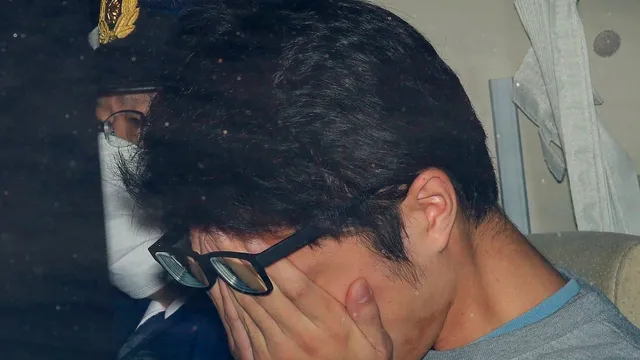
Japan executes Twitter killer for dismembering nine victims
2025-06-27 07:13- Takahiro Shiraishi was sentenced to death in 2020 for the murder and dismemberment of nine victims, lured via social media.
- His execution occurred on June 27, 2025, amid ongoing discussions about capital punishment in Japan, particularly following recent high-profile cases.
- The case highlights significant societal concerns regarding mental health and the justice system's handling of vulnerable individuals.
Express your sentiment!
Insights
In Japan, Takahiro Shiraishi, convicted as the 'Twitter Killer,' was executed on June 27, 2025, nearly three years after his sentencing in December 2020. Shiraishi's heinous crimes took place in 2017, during which he murdered nine individuals—eight women and one man—who were lured to his apartment near Tokyo under false pretenses. Most of his victims had expressed suicidal thoughts online, making them vulnerable to his manipulative tactics. Shiraishi approached them via Twitter, promising to help them die in a pact, only to subsequently kill and dismember them. Police discovered the remains of his victims in cold-storage cases in his apartment as authorities investigated a missing person's report concerning one of the women, prompting Shiraishi's arrest that same year. The case shocked Japanese society, sparking fervent discussions on mental health and capital punishment. In Japan, suicide rates are comparatively high, exacerbated by social stigma surrounding mental health issues. The public's reaction to Shiraishi's execution reflects a broader national discourse on the death penalty, particularly following the recent acquittal of Iwao Hakamada, the world's longest-serving death-row inmate. Hakamada's exoneration raised serious questions regarding the reliability of the criminal justice system in Japan. Despite growing calls for the abolition of capital punishment, particularly in light of potentially wrongful convictions, surveys indicate strong public support for maintaining it, especially in response to serious crimes like those committed by Shiraishi. Justice Minister Keisuke Suzuki justified the execution, emphasizing the serious societal impact of Shiraishi's actions and the need for capital punishment in certain circumstances. He pointed out that the execution was conducted in secrecy, a common practice in Japan, where death-row inmates typically learn of their execution only on the day it occurs. Shiraishi's execution marked the first since the execution of a man convicted of killing seven in a stabbing rampage in 2022. Japan retains the death penalty while standing as one of the few industrialized nations in the Group of Seven to do so, indicating a contrasting approach to criminality and punishment relative to international standards. As Japan navigates these complex issues, the case of Shiraishi exemplifies the profound consequences of crime on mental health, societal safety, and the ongoing debate surrounding capital punishment. It underscores the complexities of addressing mental health crises and the potential vulnerabilities exploited by individuals like Shiraishi. The broader implications speak to a need for systemic change in Japan's approach to mental health, crime prevention, and its legal philosophies surrounding punishment.
Contexts
Japan has a complex and historically rooted relationship with capital punishment, which remains a contentious issue in contemporary society. This punitive measure has been in place since the early periods of Japanese history and was formalized under various legal codes, including the 1870 Penal Code. Notably, during the Edo period, capital punishment was implemented alongside alternative forms of punishment, reflecting a societal need for both deterrence and retribution. The implementation of the death penalty continued through Japan's modernization, particularly in the early 20th century, as the nation adopted Western legal frameworks. Despite this historical backdrop, the death penalty has been sparingly utilized, making its way into the contemporary penal system as an accepted form of punishment for severe crimes such as murder and terrorism. Modern Japan's stance on capital punishment can often be seen as a reflection of societal attitudes towards crime and punishment. The legal framework allows for death sentences that are occasionally meted out in high-profile criminal cases, but these sentences have sparked debates on morality, ethics, and human rights. Opponents argue that the death penalty is an irreversible punishment, especially in the wake of wrongful convictions that have emerged in numerous judicial systems worldwide. Countering this view, proponents assert that capital punishment serves as an effective deterrent against heinous crimes and reflects the public's demand for justice. In recent decades, public opinion polls indicate a consistent majority support for the death penalty in Japan, which often positions the country at odds with international human rights organizations advocating for its abolition. The Japanese government has faced increasing pressure from global entities to reconsider its stance. However, the government maintains that capital punishment aligns with societal values and is a necessary tool in maintaining law and order. The application of the death sentence, however, often lacks transparency, with many executions conducted with little prior public knowledge, leading to further criticism and calls for reform. Looking towards the future, the practice of capital punishment in Japan is likely to continue as a focal point for both domestic and international discourse. As the Japanese society evolves, influenced by both cultural traditions and global standards of human rights, the debate surrounding the death penalty will likely intensify. Given these dynamics, legislative reforms might emerge, adapting the existing framework to the changing perspectives on justice, punishment, and human rights. The trajectory of Japan's capital punishment history remains a significant area of study for those interested in law, sociology, and ethical philosophy, reflecting broader themes of justice and societal values.